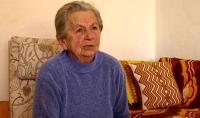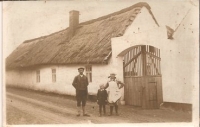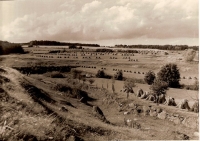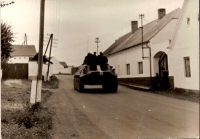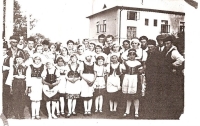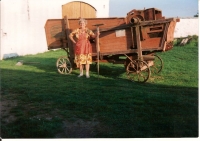I experienced collectivisation in Jetenovice.

Download image
Marie Piherová, née Štěchová, was born in Velký Bor on 7 August 1925 to a farmer family. Her father was a legionnaire. Mandatory food supplies enacted during the Protectorate forced farmers to surrender most of their produce to the state. The Štěchs hid some of their grain in an underground granary in a field. After the war, Marie married farmer Josef Pihera from nearby Jetenovice. The two planned to farm together, so they began to acquire farming equipment in 1947. When the state launched the collectivisation of the countryside after the onset of communism, most of the farmers in Jetenovice resisted. The first attempt to form a cooperative in 1952 failed. In 1954, an unprecedented local protest against the regime took place when, during the elections to the municipal council, the people of Jetenovice refused to vote for the prescribed candidates. The elections then had to be repeated under strict supervision of the district authorities. The government renewed its pressure on rural collectivisation in the mid-1950s. The largest farm in Jetenovice comprised 26 hectares of land. Due to this acreage the farmer was labelled a kulak and an attempt was made to evict him. He was not eventually evicted also thanks to Marie Piherová’s protest. The coop was established in Jetenovice in 1957. Most of the local peasants joined it over time. In the 1960s, the Jetenovice cooperative was incorporated into the Velký Bor coop. Marie Piherová joined the coop committee after 1968, but due to the majority of communist members, she was unable to vote anything through with the minority of independents. Her husband Josef Pihera, died in 1995. He never accepted collectivisation. His son Josef has been farming only part-time since 1990.
